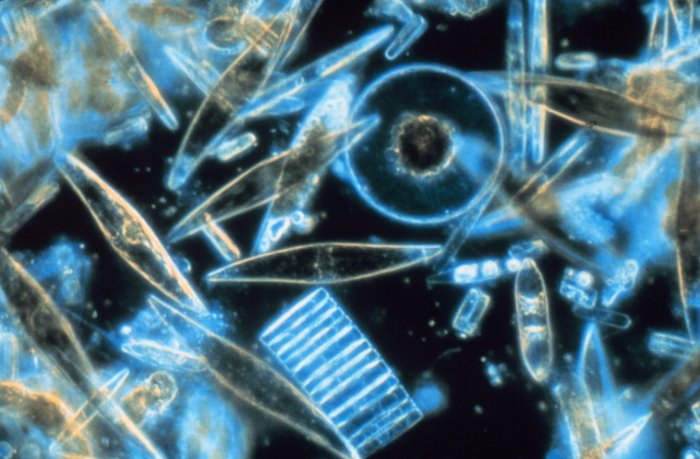Toxic chemicals in airborne dust that settle onto the surface of the oceans could be disrupting marine food ecosystems by poisoning the phytoplankton at the base of the food chain that play a vital role in regulating global climate. In particular, dust blowing off the Sahara desert is laced with copper, which kills off some types of the single celled plants and algae that harness the sun's energy and absorb carbon dioxide from the atmosphere.
 Adina Payton from the University of California at Santa Cruz in the US led a team of researchers who took air samples from different currents blowing across the Red Sea. Adding the dust to samples of seawater, they measured the effect it had on phytoplankton.
Adina Payton from the University of California at Santa Cruz in the US led a team of researchers who took air samples from different currents blowing across the Red Sea. Adding the dust to samples of seawater, they measured the effect it had on phytoplankton.
Dust blowing off land can be beneficial to marine phytoplankton because it delivers nitrogen and phosphorous - elements that are usually in short supply and can limit the growth rate of phytoplankton. Dust can fertilize phytoplankton a little like when farmers put fertilizers on crops on land.
But Payton and colleagues discovered that dust samples taken from air blowing across the Sahara didn't stimulate phytoplankton growth but instead led to a sharp decline in various species.
To investigate the possible cause of these declines, the research team analyzed the composition of the dust coming from the Sahara and found that it had higher levels of various chemicals compared to dust coming from Europe, in particular copper. Copper was suspected to be the culprit because other studies have shown it to be toxic to marine phytoplankton.
Payton and the team tested their theory by adding copper at different concentrations to samples of seawater and measured the response of the phytoplankton finding that, as predicted, the growth rate went down faster when more copper was present.
Around 65% of the copper comes from desert dust, but around 30% is manmade coming mostly from combustion especially in industrial processes.
The researchers modeled the potential global affects of copper on a global scale and highlighted several key areas where it is likely that copper will reach toxic levels in the oceans, including in Southeast Asia and the Bay of Bengal.
The results of this study are especially worrying because they showed that different species of phytoplankton have different levels of sensitivity to copper which means the toxic dust could trigger shifts in the structure of marine food chains. These sun-harnessing phytoplankton are the basis of all other marine species in the open sea.
- Previous Missing link in plants’ biological clock
- Next How to fill the ark










Comments
Add a comment